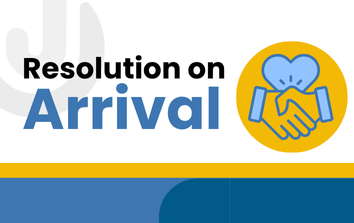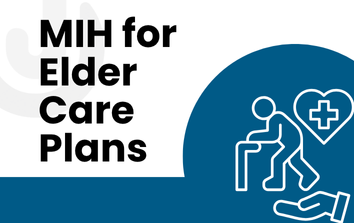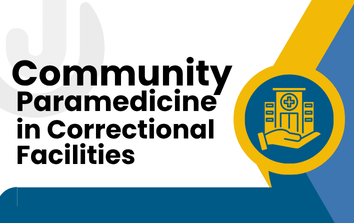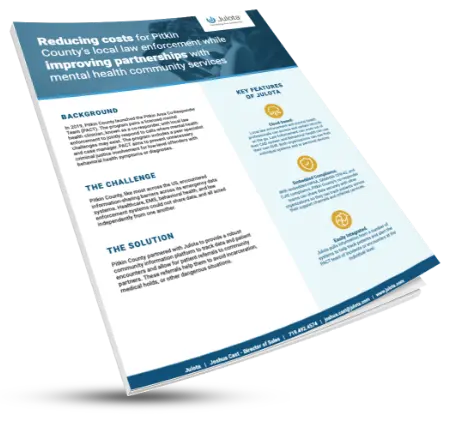In the blink of an eye, a mental health crisis can turn a person’s world upside down. It’s a moment when time seems to stand still, and the weight of emotional turmoil becomes unbearable. But what if there was a lifeline, a team of trained professionals ready to step in and provide immediate support? This is where a mental health crisis response team come into play. They offer a sense of relief and comfort in the face of crisis, and their importance in our communities cannot be overstated.
Imagine a world where every neighborhood had a dedicated group of experts equipped to handle mental health emergencies with the same urgency and professionalism as we treat physical emergencies. This isn’t just a pipe dream – it’s a growing reality in many communities, a sign of progress and hope. As we delve into the critical components and benefits of these teams, you’ll discover why having a mental health crisis response team is not just beneficial but essential for the well-being of every community.
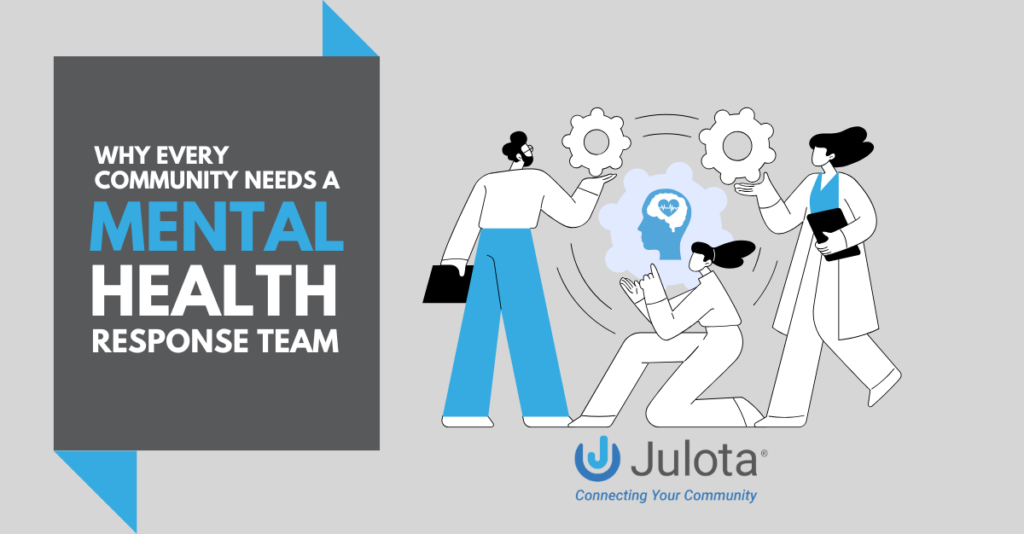
Components of an Effective Mental Health Crisis Response
An effective mental health crisis response system is like a well-oiled machine, with various components working in harmony to provide comprehensive care. Let’s explore the key elements that make up this crucial support network.
Mobile Crisis Teams: Who They Are and How They Help
At the heart of mental health crisis response are Mobile Crisis Teams (MCTs). These teams are the frontline warriors in the battle against mental health emergencies, acting with urgency and professionalism. Composed of trained mental health professionals, including psychiatrists, psychologists, social workers, and nurses, MCTs are designed to provide rapid, on-site intervention when a crisis occurs.
According to a national survey, 70% of Mobile Crisis Teams report 24/7 availability. This round-the-clock service is crucial, as mental health crises don’t adhere to a 9-to-5 schedule. However, it’s important to note that only 40% of these teams meet the minimum staffing required for 24/7, on-duty, two-person teams. This highlights a significant area for improvement in many communities.
MCTs serve a wide range of individuals, with 85% of teams catering to all age groups. Their role extends beyond immediate crisis intervention. These teams:
- Assess the situation and determine the level of care needed
- De-escalate volatile situations
- Provide on-the-spot counseling and support
- Connect individuals with appropriate resources and follow-up care
- Collaborate with other community services, including schools and child protective services
The impact of MCTs is substantial. 69% of these teams serve fewer than 200 clients per month, while 20% serve 200-500 clients and 10% serve more than 500 clients monthly. This data underscores the significant demand for these services and their vital role in community mental health.
Professional Treatment Services: Overview and Access
While Mobile Crisis Teams provide immediate intervention, professional treatment services form the backbone of long-term mental health care. These services encompass various options, from outpatient therapy to intensive inpatient programs.
Professional treatment services typically include:
- Individual therapy sessions with licensed mental health professionals
- Group therapy programs for specific issues or demographics
- Medication management with psychiatrists
- Intensive outpatient programs (IOPs) for those needing more support than traditional outpatient care
- Partial hospitalization programs (PHPs) offering structured treatment during the day while allowing patients to return home at night
Access to these services is crucial for ongoing mental health management. Many crisis response teams work closely with local mental health providers to ensure a smooth transition from crisis intervention to long-term care. This seamless integration is vital for preventing future crises and promoting overall mental wellness.
Behavioral Health Urgent Care: What to Expect
Behavioral Health Urgent Care centers are a relatively new addition to the mental health crisis response landscape. These facilities bridge the gap between emergency rooms and outpatient care, providing immediate, short-term treatment for individuals experiencing acute mental health issues.
When visiting a Behavioral Health Urgent Care center, you can expect:
- Rapid assessment by mental health professionals
- Short-term crisis counseling
- Medication evaluation and adjustment, if necessary
- Referrals to appropriate follow-up care
- A calming environment designed specifically for mental health needs
These centers offer a crucial alternative to emergency rooms, which are often ill-equipped to handle mental health crises. By providing specialized care in a more appropriate setting, Behavioral Health Urgent Care centers can significantly improve outcomes for individuals in crisis.
Statewide Resources: Peer Warmlines, BH SCAN, and More
Beyond local crisis response teams and treatment facilities, statewide resources are vital in comprehensive mental health care.
These resources often include:
- Peer Warmlines: Staffed by individuals with lived experience of mental health challenges, these phone lines provide non-crisis support and a listening ear.
- Behavioral Health Service Call and Access Networks (BH SCAN): These systems help coordinate care across different providers and services within a state.
- Online directories of mental health providers and resources
- Statewide crisis hotlines that can connect individuals to local services
- Teletherapy options for those in remote areas or unable to access in-person care
98% of Mobile Crisis Teams reported utilizing at least one of the three main suicide prevention best practices (universal screening, safety planning, and reducing access to lethal means), with 71% using all three. This statistic highlights the importance of integrating various resources and best practices to create a comprehensive crisis response system.
By combining local crisis response teams with professional treatment services, behavioral health urgent care, and statewide resources, communities can create a robust safety net for those experiencing mental health crises. This multi-faceted approach ensures that help is available at every stage of a mental health journey, from immediate crisis intervention to long-term recovery and support.
The Process of Responding to a Mental Health Crisis
Knowing the right steps to take when faced with a mental health crisis can make all the difference. Responding to such a crisis involves several key stages, from the initial call for help to navigating professional treatment services. Let’s break down this process to provide a clear understanding of what to expect and how to access the most appropriate help.
Immediate Steps: When to Call 911 vs. Crisis Lines
In the heat of a mental health crisis, deciding whether to call 911 or a mental health crisis hotline can be challenging. Here’s a guide to help make that crucial decision:
Call 911 if:
- There’s an immediate threat to life or safety
- The person is actively attempting suicide
- There’s a medical emergency alongside the mental health crisis
- The situation involves violence or weapons
Call a mental health crisis hotline if:
- The situation is urgent but not life-threatening
- You need immediate mental health support or advice
- You’re unsure about the severity of the crisis and need guidance
It’s important to note that since the launch of the 988 crisis hotline in July 2022, 5 million individuals have received support through the line as of September 2023. This demonstrates the significant need for dedicated mental health crisis response services.
What Happens After Calling a Mental Health Crisis Line?
When you reach out to a mental health crisis hotline, the process typically unfolds as follows:
- Initial Assessment: A trained crisis counselor will assess the situation’s severity and immediate needs.
- De-escalation: If necessary, the counselor will work to calm the situation and ensure immediate safety.
- Support and Guidance: The counselor provides emotional support and practical advice to address the crisis.
- Resource Referral: Based on the assessment, the counselor may refer you to local mental health resources or emergency services.
- Follow-up: Many crisis lines offer follow-up calls to ensure continued support and connection to resources.
It’s crucial to understand that the response can vary depending on location and available resources. In states like Wyoming and Vermont, 100% of calls to 988 centers that required an in-person intervention received a police response, while in New Mexico it was 98%, Kansas 87%, and Michigan 79%. This highlights the need for more specialized mental health crisis teams across the country.
Navigating Professional Treatment Services in Facility-Based Crisis Programs
After the initial crisis response, individuals may be referred to facility-based crisis programs for more intensive care. Here’s what to expect when navigating these services:
- Intake Assessment: A comprehensive evaluation to determine the appropriate level of care.
- Treatment Planning: Developing a personalized plan addressing immediate needs and long-term goals.
- Crisis Stabilization: Short-term interventions to manage acute symptoms and prevent further escalation.
- Therapeutic Interventions: Individual and group therapy sessions, medication management if necessary.
- Discharge Planning: Creating a plan for continued care and support after leaving the facility.
It’s important to note that access to these services can vary. In California, one-third of crisis callers waited over 8 hours for a mobile crisis team to arrive, and the majority waited at least 4 hours, with wait times tripling since 2019. This underscores the need for increased funding and resources for mental health crisis response teams and facility-based programs.
Navigating a mental health crisis can be overwhelming, but understanding the process can help. Whether you’re seeking emergency help for mental health issues or looking for a mental health crisis team, remember that help is available. While not perfect, the mental health crisis response system is continually evolving to provide better crisis response care to those in need.
Benefits and Challenges of Mental Health Crisis Response Teams
As communities increasingly recognize the importance of mental health crisis response teams, it’s crucial to understand both their advantages and their hurdles. Let’s explore the key benefits and challenges associated with these vital services.
Key Benefits: From Health and Safety to Cost-Effectiveness
Mental health crisis response teams offer a wide array of benefits that extend beyond immediate crisis intervention. Here are some of the most significant advantages:
- Improved Health Outcomes: Crisis response teams provide timely, specialized care that can prevent the escalation of mental health issues. Mobile crisis teams can reduce the rate of emergency department visits and hospitalizations related to behavioral health crises and connect individuals in crisis to services. This improves immediate outcomes and contributes to long-term mental health stability.
- Enhanced Safety: By de-escalating volatile situations, crisis response mental health professionals can prevent harm to individuals in crisis, their loved ones, and the community at large. This approach is often more effective and less traumatic than traditional law enforcement interventions.
- Reduced Stigma: When mental health crises are handled by specialized teams rather than law enforcement, it helps normalize mental health issues and reduce the stigma associated with seeking help.
- Cost-Effectiveness: Crisis response care can significantly reduce healthcare costs by diverting individuals from unnecessary emergency room visits or hospitalizations. Additionally, these teams can save on long-term treatment costs by preventing crises from escalating.
- Community Education: Mental health crisis response teams often engage in community outreach and education, helping to raise awareness about mental health issues and available resources.
- Improved Access to Care: These teams serve as a bridge to long-term mental health services, helping individuals navigate the often complex healthcare system and connect with appropriate resources.
- Reduced Burden on Emergency Services: By handling mental health crises, these teams free up emergency services to focus on other critical situations, improving overall community safety.
Challenges and Considerations for Improvement
While the benefits of mental health crisis response teams are clear, these services also face several challenges that need to be addressed for optimal effectiveness:
- Funding and Resource Constraints: Many crisis intervention resources are underfunded, leading to staffing shortages and limited availability. Securing sustainable funding is crucial for maintaining and expanding these services.
- Response Time Issues: In some areas, long wait times for mobile crisis teams can hinder their effectiveness. Improving response times through better resource allocation and increased staffing is a crucial area for improvement.
- Coordination with Law Enforcement: While crisis response mental health professionals are often better equipped to handle mental health emergencies, coordinating with law enforcement for safety and legal reasons can be challenging. Developing clear protocols and training programs for both mental health professionals and law enforcement is essential.
- Rural Access: Providing timely crisis response care in rural areas presents unique challenges due to geographic distances and limited resources. Innovative solutions like telehealth crisis interventions may help address this issue.
- Cultural Competence: Ensuring that crisis response teams are culturally competent and can effectively serve diverse populations is an ongoing challenge that requires continuous training and community engagement.
- Continuity of Care: While crisis response teams excel at immediate intervention, ensuring seamless transitions to long-term care can be difficult. Improving follow-up procedures and strengthening connections with ongoing treatment providers is crucial.
- Public Awareness: Many people are unaware of mental health crisis response services or how to access them. Increasing public awareness through education campaigns is essential for maximizing the impact of these teams.
- Burnout and Secondary Trauma: Mental health crisis work can be emotionally taxing. Providing adequate support, supervision, and self-care resources for team members is crucial for maintaining an effective workforce.
- Data Collection and Evaluation: Improving systems for collecting and analyzing data on crisis response outcomes is necessary for continual improvement and demonstrating the value of these services to stakeholders.
In conclusion, while mental health crisis response teams offer significant benefits to individuals and communities, there are still challenges to overcome. By addressing these issues head-on, we can work towards a more comprehensive, effective, and accessible crisis response system that truly meets the needs of those experiencing mental health emergencies.

